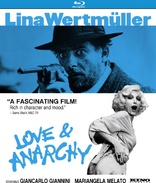Love and Anarchy Blu-ray Movie
HomeLove and Anarchy Blu-ray Movie 
Film d'amore e d'anarchia, ovvero 'stamattina alle 10 in via dei Fiori nella nota casa di tolleranza...'Kino Lorber | 1973 | 120 min | Rated R | Jun 19, 2012
Movie rating
6.8 | / 10 |
Blu-ray rating
| Users | 0.0 | |
| Reviewer | 4.0 | |
| Overall | 4.0 |
Overview
Love and Anarchy (1973)
In pre-World War II Italy, the employees of a popular Roman bordello realize that a new arrival (Giancarlo Giannini, Hannibal, Casino Royale) is planning to assassinate Mussolini. When one of the girls (Lina Polito, All Screwed Up) falls in love with the man, she's torn between saving him and saving her country. This is the film that put Italian director Lina Wertmueller (Swept Away) on the map of world cinema. Giannini won a Best Actor award at the Cannes Film Festival for his portrayal.
Starring: Giancarlo Giannini, Mariangela Melato, Eros Pagni, Lina Polito, Elena FioreDirector: Lina Wertmüller
| Drama | Uncertain |
| Comedy | Uncertain |
Specifications
Video
Video codec: MPEG-4 AVC
Video resolution: 1080p
Aspect ratio: 1.85:1
Original aspect ratio: 1.85:1
Audio
Italian: DTS-HD Master Audio Mono
Subtitles
English
Discs
25GB Blu-ray Disc
Single disc (1 BD)
Playback
Region A, B (C untested)
Review
Rating summary
| Movie | 4.5 | |
| Video | 3.0 | |
| Audio | 3.5 | |
| Extras | 0.5 | |
| Overall | 4.0 |
Love and Anarchy Blu-ray Movie Review
The best little whore house in Rome.
Reviewed by Casey Broadwater June 15, 2012Although Lina Wertmüller had achieved some measure of acclaim with her previous film, 1972's sex romp and cultural satire The Seduction of
Mimi, it was Love & Anarchy that internationally announced the female filmmaker as the heir to the commedia all'italiana of
Vittorio De Sica, Mario Monicelli, and other post-war "pink" neorealists who couched laughs within the context of social commentary. Set in a posh
bordello during the lead-up to WWII, the film also earned the ire of second-wave feminists who saw Wertmüller as a gender traitor, contributing to the
objectification of women by glorifying prostitution.
This was before feminism's swing towards sex positivity in the 1980s, of course, and it's now easier to see Wertmüller's intent; the prostitutes in the
film are by far the strongest, most-capable and self-actualized characters, whereas their johns—who aren't central to the story at all—are portrayed as
stereotypically weak and depraved. Even more subversive, though, is the symbolic link the director makes between fascism and sexual aggression. At
one point, the brothel's madame observes that "whenever there's a military ceremony, everyone winds up in the whorehouse." At this point in her
career, the overlap of sex and politics was Wertmüller's main thematic concern, and here she sets up an almost binary distinction between lust/fascism
and love/anarchy, romanticizing the idealistic young martyrs who sought to assassinate Mussolini.
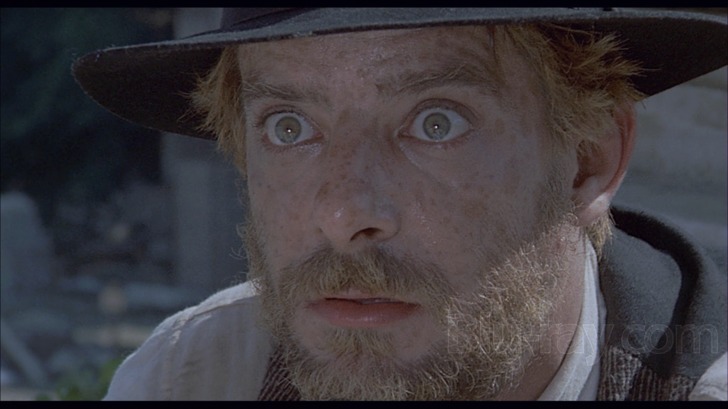
Tunin
The film stars The Seduction of Mimi's Giancarlo Giannini as Tunin, a freckle-faced ginger and soft-spoken bumpkin who devotes himself to anarchy when his friend—who was planning to kill Mussolini—is murdered by the fascist police. Tunin is gun-trained and sent to a high-class brothel in Rome, where he rendezvous with the Jean Harlow look-a-like Salomè (Mariangela Melato), a prostitute and undercover anarchist—also out for revenge —whose pillow talk involves ferreting out intelligence from her high-ranking governmental and military cliental. The two anarchists pose as cousins to avoid the suspicions of the maison's madame (Pina Cei) and her right-hand manager (Elena Fiore), but this charade presents its own complications, especially in light of the clear sexual tension between them.
Much of the film's first act centers on Tunin's supreme awkwardness as a naive farm boy in an upscale den of iniquity. When Salomè catches him gawking at her bared legs, she replies, "those eyes look like you're standing in front of a rotisserie!" To calm his nerves, she offers him a lay—on the house—but the mixing of business and pleasure burdens Tunin with some uneasy emotions. The romantic melange is further complicated by the addition of a second love interest, Tripolina (Lina Polito), the archetypal hooker with a heart of gold.
Under the guise of a double-date, Salomè arranges a fact-finding trip to a rural piazza where Mussolini is scheduled to make an appearance in a few days. Here we're introduced to macho meat-head Spatoletti (Eros Pagni), the fascist head of police and Salomè's most loyal customer. His braggadocio makes it comically easy for Salomè to wheedle out info about Mussolini's security detail—how many soldiers there are, where they'll be stationed—and while she keeps Spatoletti busy in the bed of a local inn, Tunin is free to explore the area with Tripolina and mentally plan out the assassination. Love distracts from anarchy, however, and this becomes the conflict that carries through to the end of the film.
Wertmüller doesn't coldly intellectualize her subject, as some other European directors have with the issue of fascism—like, say, Pier Paolo Pasolini—but rather adopts a more human, intuitive, and almost sentimental tone that's entirely in keeping with commedia all'italiana's brand of melancholy humor. Tunin has no real philosophical justifications for becoming an anarchist beyond "I hate tyrants"—as he says early in the film—and a need for revenge. Gradually, though, we understand that he hopes to do something of lasting importance, an aspiration he believes—for a hayseed farmboy—is only obtainable through political violence. "This action is what I need to feel like a man," he tells Tripolina when he finally confesses his real reason for being in Rome, but it's an assertion that contradicts his earlier claim that for peasants it's "better to kneel down and live than stand up and die." Wertmüller emphasizes the psychological messiness of courage in the face of certain death, and the film itself dotes on the character of Tunin with an almost maternal, there there sense of affection. He's a hero, even if his name and acts are never remembered.
In terms of pure filmmaking, Love & Anarchy is one of Wertmüller's best. Cinematographer Giuseppe Rotunno—a frequent Fellini collaborator— captures the period-piece 1930s vibe perfectly, and acclaimed composer Nina Rota (The Godfather), delivers a wonderfully complementary score. Of course, since this is an Italian drama-comedy, you can expect some of the acting to be exceedingly theatrical—Eros Pagni's Spatoletti is as hammy a caricature of red-blooded fascism as can be imagined—but the principals are all fantastic. Lina Polito's sweetness wins our sympathy, and Mariangela Melato's amped-up sexual frankness gives the film its brassy verve. As Tunin, though, it's Giancarlo Giannini that steals each scene, which is impressive considering his is the most low-key performance. The magic is in his eyes—easily wounded, often embarrassed, but occasionally flickering with a maniacal, beyond-all-reason bravery.
Love and Anarchy Blu-ray Movie, Video Quality 
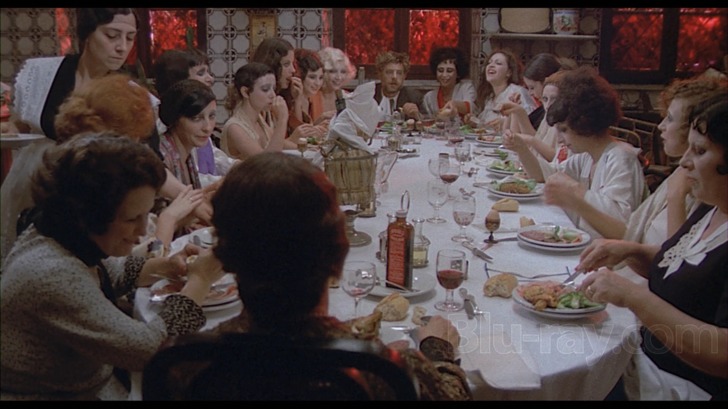
What I wrote for The Seduction of Mimi applies here too. At first glance and from a distance, Kino-Lorber's 1080p/AVC-encoded transfers of Love & Anarchy and the other two Lina Wertmüller titles look decent and about what you'd expect from mid-1970s Italian films—reasonably sharp and nicely colored, with only mild age-related print damage. If you peer closer, though, you'll often see—in addition to grain—what looks like a flurry of buzzing compression artifacts, sometimes obscuring fine textures, softening hard lines, and affecting the gradation between colors. I reached out to Kino, asking about what might've caused this, and I got this response: "The HD masters came from a different source than usual, Societe Nouvelle de Distribution, and were not transferred by Bret Wood, who normally oversees most of our Kino Classics titles." To me, these look like high definition masters that were originally intended for a DVD release—natural filmic grain seems somewhat diminished and softened, but the image is still quite noisy. If you have a smaller TV this might not be as apparent, but those with large screens or projectors will probably notice it. Still, this isn't a huge distraction —from a normal viewing distance it's never overtly apparent—and in terms of overall clarity these transfers present a solid improvement over older home video editions. Could these films look even better? Absolutely. Is it likely they'll actually get a restorative overhaul sometime within this technological generation? I kind of doubt it. I'm content.
Love and Anarchy Blu-ray Movie, Audio Quality 
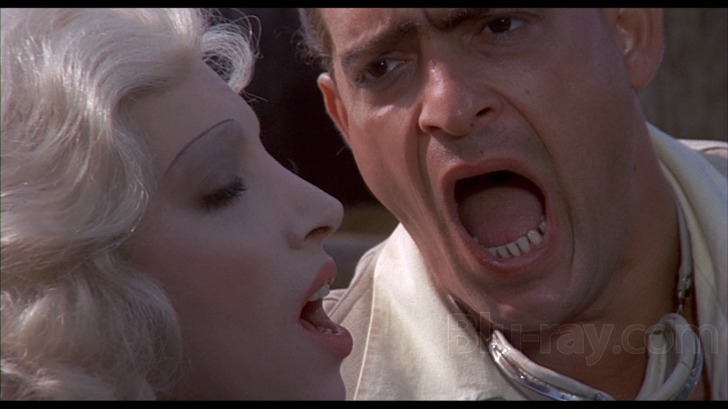
Love & Anarchy arrives on Blu-ray with a faithful DTS-HD Master Audio mono track. Like the print, the sound hasn't been significantly cleaned up, so you will hear the occasional hiss or crackle, especially in the dubbed dialogue, which can sometimes be low and slightly peaky. (Though never to the extent that Italian speakers would have trouble following it.) Characteristic of films from the era, the audio is decidedly top-heavy, with no real low- end, but Nina Rota's wonderful score comes through fairly cleanly. A listenable but by no means perfect mix. The disc includes optional English subtitles, which appear in easy-to-read white lettering.
Love and Anarchy Blu-ray Movie, Special Features and Extras 
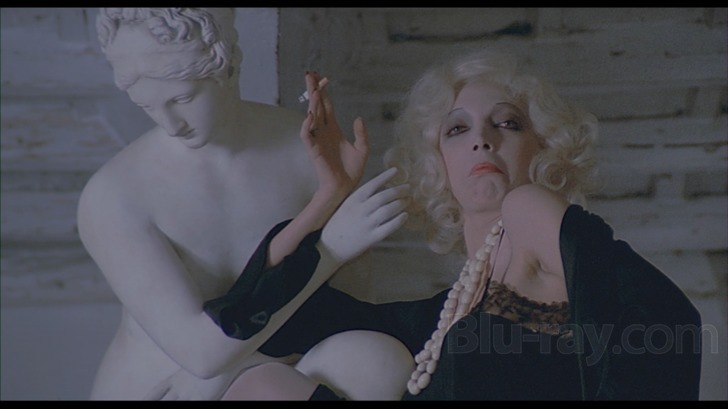
The only extras on the disc are a photo gallery with twelve stills and three high definition trailers.
Love and Anarchy Blu-ray Movie, Overall Score and Recommendation 
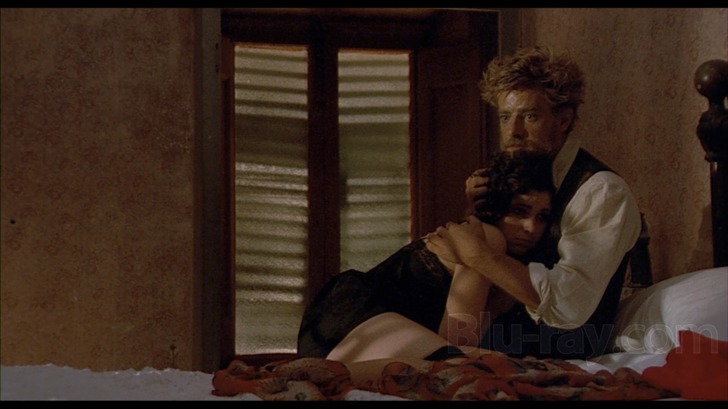
Of the three Lina Wertmüller films Kino-Lorber is releasing this month, Love & Anarchy is arguably the best, a sad period piece comedy that romanticizes the fight against the fascists of the 1930s, even when that fight was seemingly futile. Fans of Italian cinema will definitely want to pick up all three, however, which makes me wonder why Kino opted to bundle the DVDs together in a box set but only offer the Blu-rays individually. The lack of bonus material is unfortunate, and the picture quality isn't quite up to Kino's usually high standards, but the films do look better than ever. Recommended for all commedia all'italiana-philes.
Similar titles
Similar titles you might also like

The Conformist
Il Conformista | 4K Restoration
1970

To Be Twenty
Avere Vent'anni
1978

Mamma Roma
1962

Christ Stopped at Eboli
Cristo si è fermato a Eboli / Full-Length Version
1979

Accattone
1961

Yesterday, Today and Tomorrow
Ieri, oggi, domani
1963

WUSA
1970

The White Sheik
Lo sceicco bianco
1952

Pasolini
2014

Hard to Be a God
Трудно быть Богом
2013

I Am Cuba
Soy Cuba
1964

Nights of Cabiria
Le notti di Cabiria
1957

I Vitelloni
1953

Il Sorpasso
The Easy Life
1962

Paisan
Paisà / Original Release Version
1946

Seven Beauties
Pasqualino Settebellezze
1975

Conversation Piece
Gruppo di famiglia in un interno
1974

2 or 3 Things I Know About Her
2 ou 3 choses que je sais d'elle
1967

L' Avventura
1960

The Seduction of Mimi
Mimì metallurgico ferito nell'onore
1972
